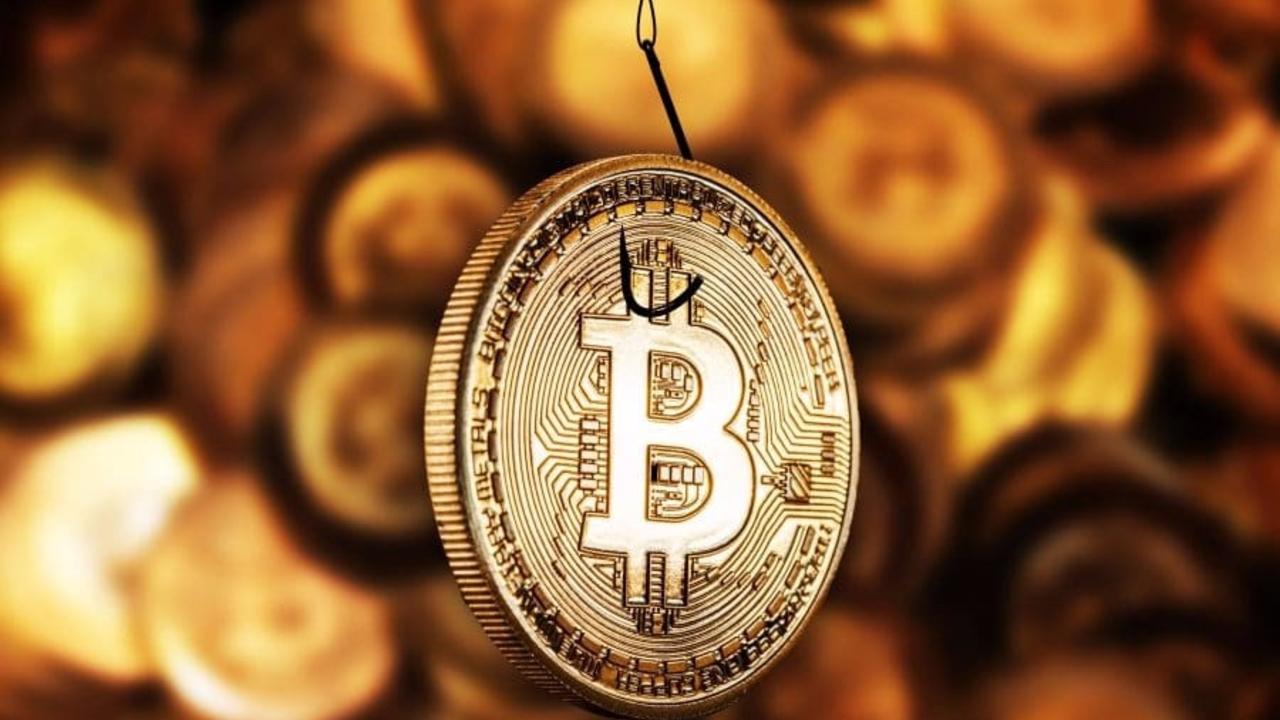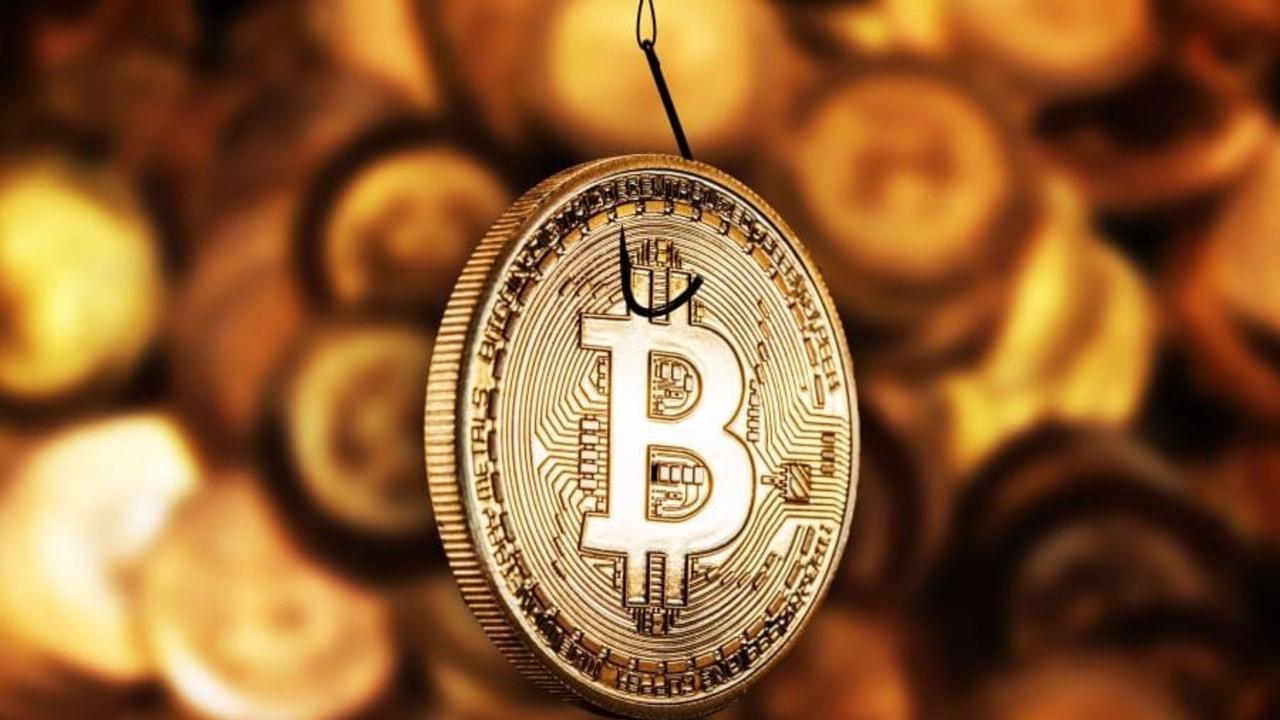
People often turn to Bitcoin and cryptocurrency when they are in need of financial security, but this can be a recipe for emotional investing. Often, this can lead people to become the victim of a Bitcoin scam.
In this article, we will clear up the confusion around whether or not Bitcoin and crypto is a scam. We’ll also take a look at the different types of Bitcoin scam formats, how to stop Bitcoin scam emails, and how to tell if you’re about to be caught out by a Bitcoin scam or not.
Is Bitcoin a Scam?
So, is Bitcoin a scam? No, no it is not. Bitcoin is a relatively new technology that serves as a purely transparent, decentralized, and open-source currency. This means that Bitcoin can not be controlled, owned, or manipulated by any governing body or central entity.
Bitcoin is borderless and can be used by anyone in the world with an internet connection.
Due to the strength of the Bitcoin network and the cost to any potential attacker, it would be practically impossible for someone to hack Bitcoin. There are currently no supercomputers powerful enough to do this and though theoretically possible, any successful attempt at doing so would take longer than a lifetime to achieve.
Is the Bitcoin Revolution a Scam?
Bitcoin is a revolutionary digital currency with properties similar to gold. It is thought by the U.S. Office of the Director of National Intelligence that cryptocurrency could “undermine the U.S. dollar as the world’s reserve currency.”
In the early ‘90s, during the global dawn of internet and online electronic communication adoption, it was common for people to receive a lot of spammy emails and scams in their inbox.
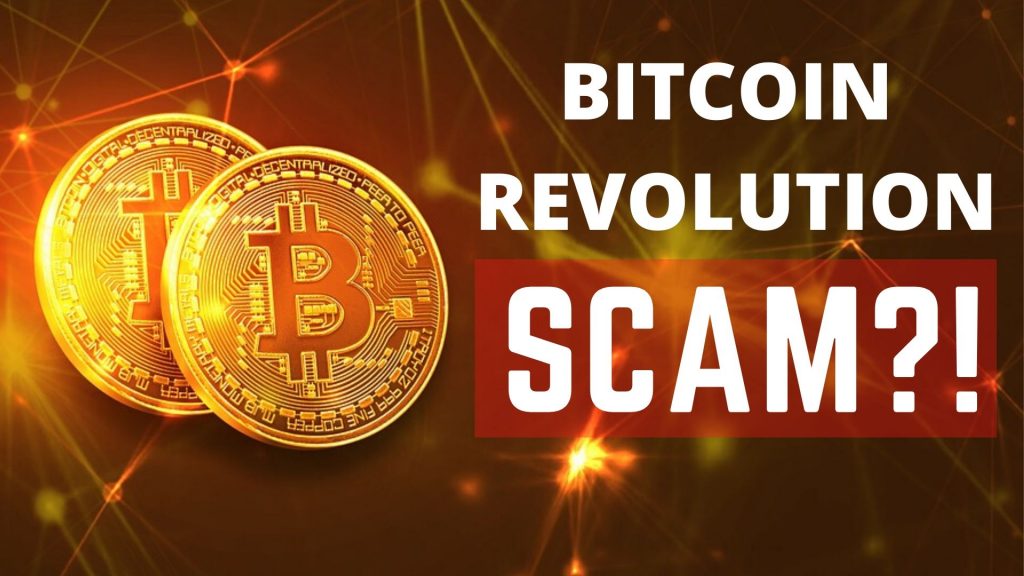
Is Bitcoin a scam? Both the short and long answer is no
The novel technology was not the cause of these scams. These scams were due to a few intelligent people who realized that they were able to make a bit of extra cash by tricking, manipulating, and conning people by using this new technology.
Bitcoin Scam Emails
Recently there has been a surge in Bitcoin scam emails. Google Trends shows that there has been a spike in users searching for: “Bitcoin email saying I have money“. The rise in crypto scams has spread fear, uncertainty, and doubt among the general public about the potential of the often-named ‘digital gold’.

How To Know If Bitcoin Emails Are Genuine
Have you just created an account with a centralized exchange and converted your cash or other cryptos into Bitcoin within the past few moments?
This is the ONLY time you would ever receive an email confirming that you have Bitcoin.
Confirmation Emails Should Look Like Above
This email will be confirmation of a transaction you should recognize, and will not require any further action.
If you receive an email asking you for further action, delete it immediately.
Do you recognize the address domain of the email that has been sent to you? Check the full email address – often scammers use addresses spelled very closely to recognized and established brands so that people won’t bother to check closer in detail.
Is this email offering you free Bitcoin? We hate to break this to you but nobody is giving away free money.
How To Stop Bitcoin Scam Emails
DO NOT click on any links – even to unsubscribe. It could be a phishing email (explained below) and could compromise the security of your computer.
Ideally, if you can recognize it is a scam email when it comes through, don’t open the email.

Click delete and report the email address as spam or junk mail with your email provider. This is the best way to not receive an email from this address again.
Bitcoin Scam Adverts
Scammers have worked out that the demographics most likely to fall for these fake ad schemes are frequent users across Facebook, Yahoo, AOL, and MSN – if you fall into this category please be extra wary when clicking on highly-emotive pop-ups.
This was exactly the case when a pop-up advert of Dragons Den’s investor Deborah Meaden, seemingly with a black eye, appeared across the aforementioned platforms.
Bitcoin scam ad used to lure in victims
Users clicked on the advert which took them to a homepage of what appeared to be an investment news blog, with a catchy article about how you could invest alongside the dragons and the latest most amazing way to earn free Bitcoin!
Victims handed over their personal contact details before the time ran out to be apart of the opportunity, and a couple of hours/days later they were contacted by their ‘investment manager’.
Following the advice of the scammers investment managers to deposit a small sum of £250 into a fake trading account, people thought they were watching their money increase, and would receive further communications encouraging them to deposit more.
At a time when the victims could pay no more or wanted to cash out their gains, the investment managers would send a measly £40 back to keep the victims satisfied.
If they wanted more, the investment manager would email to advise of a phone call to assist with withdrawal – and the phone never rang. No further communication was provided and users had no access to any of the money that was lost.
Image from parentsdome.com
Other crypto scams have included images of A-list celebrities pictured alongside eye-catching offers of making money with Bitcoin, however, the celebrities have nothing to do with the promotion in any way, and were placed there purely to lure the victims in.
YouTube Crypto Scams
YouTube has been slacking recently in terms of monitoring its scam adverts and videos.

There have been numerous video ads before, and during legitimate crypto influencers’ videos, all promoting the biggest, craziest giveaway event from a huge, well-known, high-net-worth individual or cryptocurrency brand.
These crypto influencers are not associated in any way with these adverts or scams, and the majority have made their viewers aware of this and encourage them to report the ads as inappropriate/spam.
The 1 – 3 hour long events, show giveaways and manipulated video interviews from high-net-worth individuals, asking viewers to get onboard.
It’s really simple and easy for the viewers to give (lose) their Bitcoin using the QR code that appears on the screen.
It is often seen that these scammers are either offering free Bitcoin or other crypto assets, or asymmetrical giveaways, meaning “if you send us 1 BTC, we’ll give you 2 BTC.“
NOBODY IS GIVING YOU FREE BITCOIN, BE WARNED.
Twitter Crypto Scam Hack
On July 15th 2020, the largest Twitter hack in history occurred, with the hackers taking over 130 accounts posting as reputable profiles asking people to send their Bitcoin to a given address, in order to receive twice as much back.

They initially started with crypto exchanges and platforms, with Coinbase, Binance, and Coindesk being among the first to be affected before the hackers moved across to influencers in the industry.
Next were billionaires Elon Musk, Bill Gates, Jeff Bezos, and well-know restaurant chains and global companies like Wendy’s, Apple, and CashApp.

Barack Obama and Joe Biden were next to be taken over. Some people in the crypto community were waiting for President Trump’s announcement but due to extra security protection of his account, he was not affected.
At the time, people questioned whether it may be an inside job, however, the Twitter team responded to the attack by preventing any verified account from posting, and tweeted from their support account they were working to resolve the issue as soon as possible.
Recently it was reported that 17-year-old Graham Clark from Florida has been arrested on suspicion of orchestrating the attack, with 2 other arrests made in California. The young black-hat hacker has previously been suspected of being involved with online theft of $856,000 – however, was never charged.
The whole fiasco resulted in $110,000 worth of Bitcoin being sent to the hackers’ addresses, with no way of getting it back to the victims.
How To Spot A Cryptocurrency Scam
There are many types of cons and tricks that can scam people out of their money. Below we have listed the most common Bitcoin scam formats, so you can recognize how they work and avoid falling for a Bitcoin scam in the future.
Blackmail
There are a couple of different ways attackers try to blackmail people out of their hard-earned cash. In one scenario they will inform the victim that they know their “dirty secrets” and threaten to expose them unless they make payment in Bitcoin (or another crypto).

Another form of blackmail is when the attacker has managed to hack into your crypto wallet, and taken control of your funds. The hacker can not send the funds to their own address, rather, they hold the victims’ funds ransom, threatening to send a transaction with a massive fee to the miners, unless the victim transfers Bitcoin into the scammers’ wallet address.
Solution: Blackmail is a crime, and should you fall victim to one of these attacks, the best way to resolve the issue would be to contact your local police authorities.
Asymmetrical or Free Giveaways
Unbalanced, asymmetrical, disproportional giveaways – where the scammers tell you to send in ‘X’ amount of Bitcoin, and you will receive ‘2X or 3X’ in return.
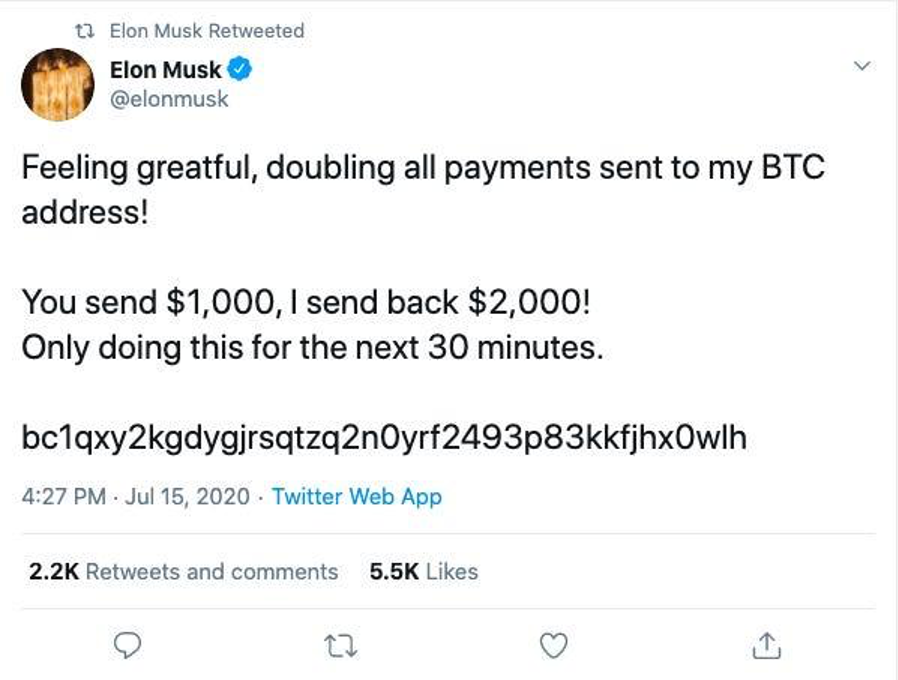
These kinds of giveaways have been promoted across popular platforms like YouTube and Twitter, resulting in hundreds of thousands of dollars worth of Bitcoin being sent to the scammers.
Solution: If you recognize this kind of promotion steer well clear – you will never get your crypto back.
Impersonations
The recent July Twitter attack will be a reminder for years to come that what is posted on social media, may not always come from the registered user of the account.

The July 2020 Twitter Bitcoin Hack
On YouTube, there have been impersonated videos of Vitalik Buterin and Jeff Bezos running a giveaway during hour-long interviews.
Solution: If you see something that appears too good to be true posted by a celebrity or high-net-worth individual, it probably is. Check what other people are saying about this on social media platforms and in the comment sections, or type in the name of the subject and ‘scam’ into Google. If it seems a bit fishy, avoid it.
Money Transfer Laundering/Fraud
There are a lot of people looking for ways to work from home at the moment, and sadly there are some scammers that want to take advantage of this.
If your employer asks you to receive and hold a certain amount of crypto, before then transferring to a different address in exchange for money, this is illegal.
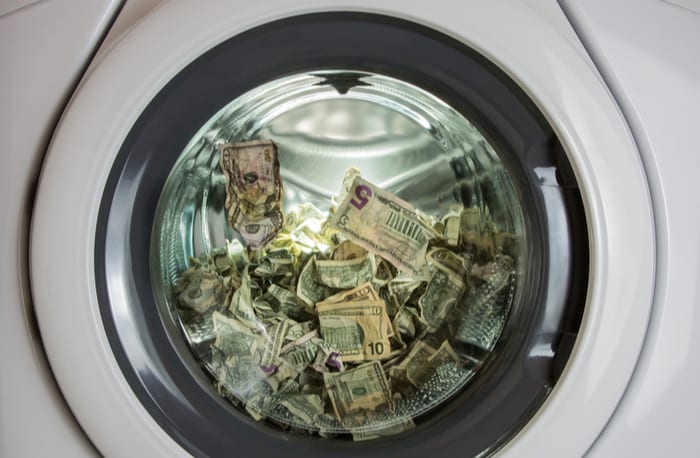
The penance for doing so is steep, and more often than not, it is the unsuspecting victims of the arrangement that are reprehended for participating.
Solution: If anyone (friend, family member, employer) asks you to hold and transfer money, this is money laundering and can result in imprisonment. Never do this.
Fake Exchanges
There have been reports of scammers creating fake exchanges, in which victims believe they have their funds stored safely in a digital online wallet with the exchange where they transfer and deposit crypto and view their balances. However, these people were unable to withdraw funds.
According to Financial Club reports, the Ukrainian police have now shut down the following exchanges: myexchanger.lv, iconvex.net, likechange.biz, and wowex.online.
In 2019, six people were arrested in the UK for investigation of ‘typosquatting‘ – a method of creating a fake crypto exchange to gain access to victims’ Bitcoin wallets.
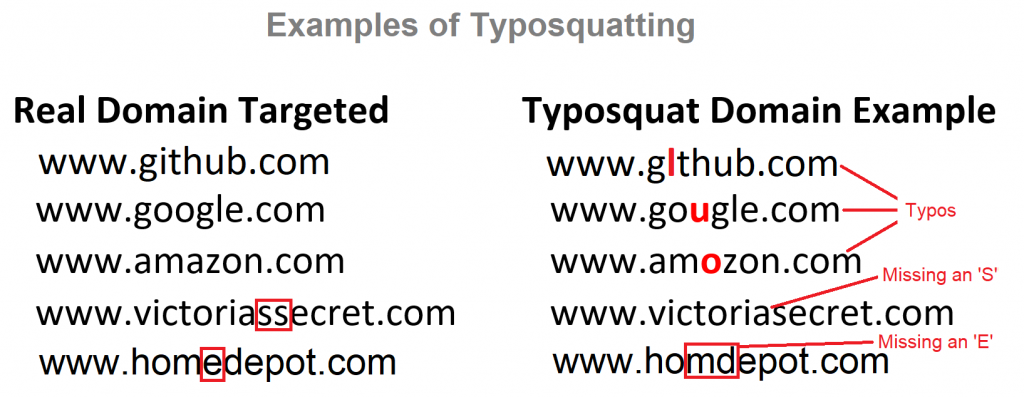
The scammers managed to con $27 million from over 4000 people across 12 countries.
Solution: DYOR (Do Your Own Research) about the exchange you are wanting to purchase your crypto from. Ideally use recognized and established centralized exchanges if you’re just starting out; such as Coinbase or Binance. You can see exchange ratings color-coded in a trust rating on coingecko.com.

Phishing Emails
If you receive a crypto-related email congratulating you on winning some free Bitcoin – or you’ve been picked to take part in an amazing offer to get free crypto, more than likely this is a phishing email.
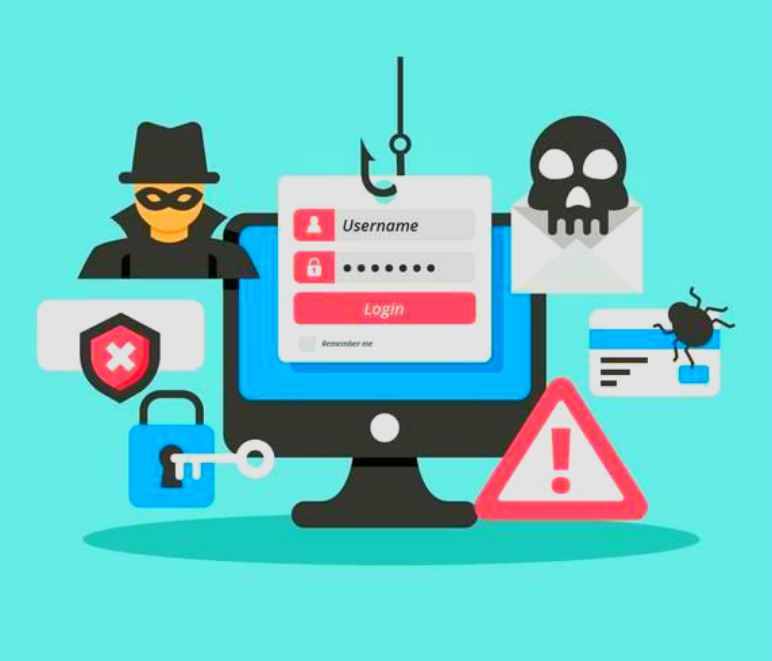
Often, the email will ask you to click a link and put in your personal details. At this stage, just by clicking the link, the scammer can access your computer and activate a keylogger – meaning anything you type on your computer, will be typed on to their computer (personal details and passwords).
Solution: Learn to recognize before opening the email that it is more than likely a scam, and delete it straight away. If you do open the email, do not click on any links (even to unsubscribe) or give ANY personal details.
Conclusion
Bitcoin is valuable, and though it can be used as a medium of exchange, it is a highly efficient store of wealth, maintaining and increasing in value over time.
If you hold some Bitcoin, be careful where and how you spend it. Should you choose to spend it, there are now many legitimate Bitcoin merchants and debit card providers, making it easier than ever to spend your cryptocurrency.
The main note to take away from this article is that Bitcoin and other cryptocurrencies themselves are not a scam. The scammers are demanding Bitcoin – as they obviously see the value in which it holds.
You are your own bank. You are free to choose how you spend your crypto money. However, we strongly advise you to do your own research (DYOR) on the history and activity of any exchange or merchant you’re about to send your crypto to. Please refer back to these points in the future if you’re ever unsure if you’ve encountered a Bitcoin scam or not. With great power, comes great responsibility.
